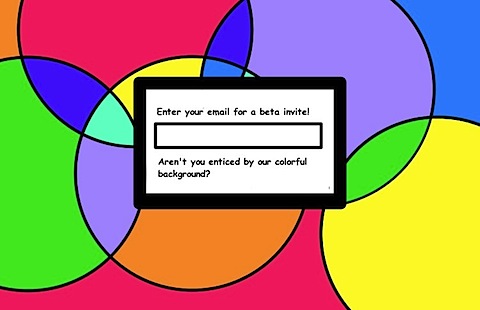What value is all this talk about gamification?
It’s one thing to deploy game-design tactics to turn your for-profit services (like Foursquare or Hashable) into games. By playing games, folks actually will train themselves to use these products.
More troubling to me is the idea of using gamification to redesign work tasks.
Gamification and Work
It’s true that, when gamification is done well (as in, with a deep understanding of what motivates people), gamification becomes a set of tools and techniques for sustaining intrinsic motivation.

Unfortunately, it’s more likely that businesses will use gamification techniques to turn work into tightly controlled play. Controlled, fake play diminishes both the worker and the work.
With that concern, I didn’t see much reason for promoting gamification at work, until some research on entitlement caught my attention.
Psychologists O’Brien, Anastasio, and Bushman have been studying the way a sense of entitlement influences how people perceive the value of their time. Entitled people feel like their time is very valuable, and they resent having to waste their time.
Entitlement makes us resent mundane tasks
Take this observation into the world of work, where we have many dull tasks that are absolutely necessary. For everyone, the duller the task the longer that task seems to take, and the more quickly we want to scoot away when it’s over.
Now thing about people with a strong sense of entitlement. For them, this link between dull tasks, time dragging, and time wasting is even worse. For dull tasks that took the same finite amount of time, participants who were primed to feel entitled rated them as taking longer. And, they were more likely to characterize that time as being ‘wasted‘ versus having been a necessary cost of getting the job done.
While the authors don’t make this next link in their study, it’s just a short walk from feeling like you are wasting your time to feeling resentful of the organization or manager who is making you waste it. Workers with a sense of entitlement can easily come to resent an organization that “wastes” their time. That’s understandable if the work is fetching coffee, but not as understandable when it’s routine, dull, but necessary work.
We can’t resent necessary work, we just need to get it done.
If entitlement makes people feel more negatively about mundane but necessary work, we’ve got some problems ahead. If it’s true that new entrants to the workforce, a group otherwise known as Millennials, feel more sense of entitlement than previous generations, we might see resentment growing within organizations, especially among entry-level or routine jobs with lots of necessary but dull work.
Oh, so no wonder people are into gamification…. the whole problem of dull work is getting worse!
Entitlement ramps up the problem of boring work
Organizationally, we used to address this kind of challenge with programs for redesigning work systems to enrich jobs. (Old-school job enrichment is the same thing as well-done gamification, just without the leaderboard stuff.) Individually, we worked on ‘job crafting’ to reshape the job to fit our own personal preferences.
Gamification gives us an additional way to make work less dull.
But, maybe a new tactic is not what we need. Maybe we just need to do the old stuff– better.
As far as making work into games…. Using gamification to ‘gussy up’ routine and necessary tasks might make them more palatable to workers with a heightened sense of entitlement. But, at the same time, the motivational power of many games wears off after time, so any positive effect is hard to sustain. So, while gamification candy-coats necessary work, the fun flavor quickly wears off.
Worse, efforts to gamify might just serve to distract us from redesigning the work itself, and from creating a more salient, more purpose-oriented context.
There is so much more that we can do to improve how we organize and structure work. We might not be able to make all work less dull, but we can make it more meaningful.
 Is gamification itself a waste of time?
Is gamification itself a waste of time?
It doesn’t need to be. Gamification could be a way into a discussion about how to make work tasks meaningful.
However, gamification will only be effective if and when it supports a larger conversation about why we’re here, what we aim to do, and how we each can contribute.
Gamification must be designed to create meaning, not ‘flair‘, and to pursue purpose, not leader board points.
Addressing entitlement at its root
As it happens, gamification that links dull work to contributions and to collective meaning will also address the root issue of entitlement.
Entitlement, at its root, is self-centeredness. The best way to counter any tendency to locate all importance and all meaning in oneself is to connect the self to others, and to a collective purpose that exists…wait for it… outside the self.
Sure, I’ll take a few cute badges, become the mayor of the conference room, and win a t-shirt by scaling the leader board. But truly, I’d just rather have my work contribute to a greater purpose.
Wouldn’t everyone?
O’Brien, E. H., Anastasio, P. A., & Bushman, B. J. (2011). Time crawls when you’re not having fun: Feeling entitled makes dull tasks drag on. Personality and Social Psychology Bulletin, 37, 1287-1296.
See also:
How Job Crafting Can Get You Closer to Authentic Work
How to Design Social Business Systems For Engaged, Social Organizations
How Social Media Create Organizational Meaning
Images: Gamification of Life ![]() Some rights reserved by VFS Digital Design, Gamification at its best
Some rights reserved by VFS Digital Design, Gamification at its best ![]() All rights reserved by LenKendal
All rights reserved by LenKendal
 I am an organizational consultant, change advocate, and organizational identity/reputation scholar with a PhD in leadership & organizations. I research, write about, and consult with organizations on the relationships between organizational identity, actions, and purpose. I teach Technology Management, part-time, at Stevens Institute of Technology.
My current research focuses on how social technologies in the workplace can drive organizational change, generate meaning, and catalyze purpose. See the
I am an organizational consultant, change advocate, and organizational identity/reputation scholar with a PhD in leadership & organizations. I research, write about, and consult with organizations on the relationships between organizational identity, actions, and purpose. I teach Technology Management, part-time, at Stevens Institute of Technology.
My current research focuses on how social technologies in the workplace can drive organizational change, generate meaning, and catalyze purpose. See the 
Comments on this entry are closed.